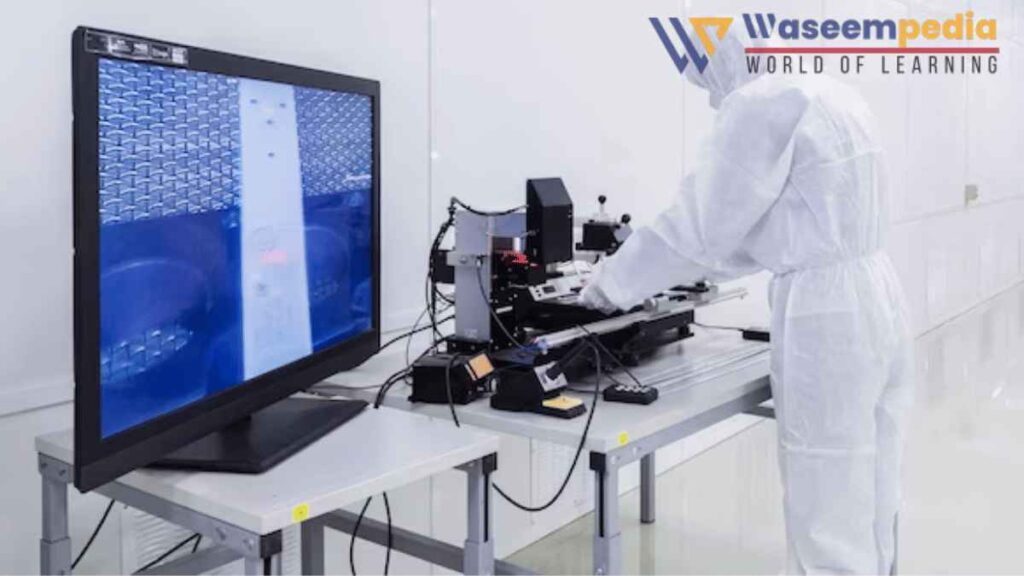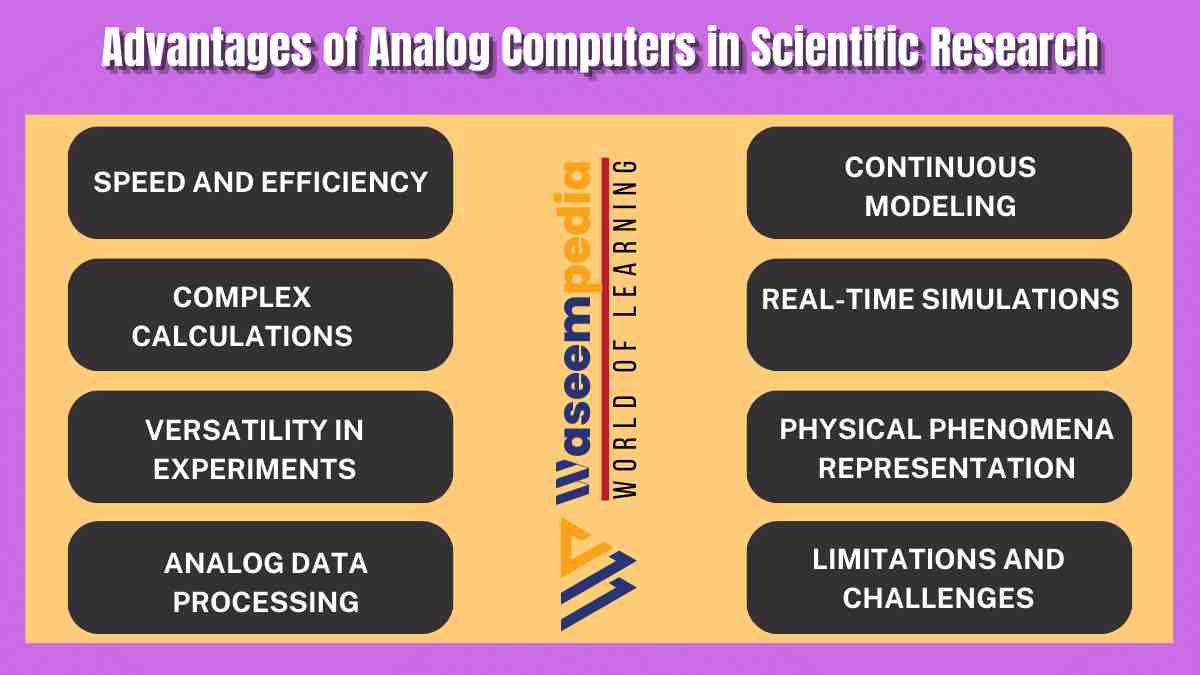Analog computers play a vital role in scientific research by offering unique advantages in specific domains. Their speed, continuous modeling capabilities, ability to handle complex calculations, real-time simulations, and versatility make them valuable tools for scientists exploring intricate phenomena. Despite their limitations, analog computers continue to contribute to scientific advancements and remain an essential component of the research landscape.

In the realm of scientific research, the utilization of computers has revolutionized the way experiments are conducted, data is analyzed, and breakthroughs are achieved. While digital computers have become the dominant force in the field, analog computers still hold a significant advantage in specific scientific applications. This article explores the various advantages of analog computers in scientific research and highlights their unique contributions to advancing our understanding of complex phenomena.
Analog computers are powerful tools that excel in certain scientific research domains. While digital computers operate on discrete values, analog computers process continuous signals, enabling them to mimic and analyze real-world phenomena more accurately. Let’s explore the advantages that analog computers offer in scientific research
What are Analog Computers?
Analog computers are computational devices that manipulate physical variables, such as electrical voltages or currents, to perform calculations and solve complex problems. Unlike digital computers that work with binary digits, analog computers represent data using physical quantities.
7 Advantages of Analog Computers in Scientific Research
7 Advantages of Analog Computers in Scientific Research are as following
1. Speed and Efficiency
Speed and Efficiency is a one of the most important Advantages of Analog Computers in Scientific Research. Analog computers are renowned for their speed and efficiency. Due to their continuous nature, they can perform calculations simultaneously across multiple variables. This parallel processing capability allows analog computers to solve complex mathematical equations more swiftly than their digital counterparts, enabling researchers to obtain results in real-time.
2. Continuous Modeling
In scientific research, precise modeling of continuous phenomena is often crucial. Analog computers excel in this aspect by directly emulating real-world behavior. Their ability to process continuous signals enables scientists to create accurate models that mirror the dynamics of complex systems, such as fluid flow, electrical circuits, and biochemical reactions.
3. Complex Calculations
Analog computers are particularly advantageous when dealing with intricate calculations that involve differential equations, integrals, and non-linear systems. By utilizing various circuit configurations and electronic components, researchers can exploit the analog computer’s ability to approximate complex mathematical functions, providing valuable insights into complex phenomena.
4. Real-Time Simulations
Scientific experiments often require real-time simulations to analyze and predict dynamic behavior. Analog computers excel in this area, allowing researchers to observe and analyze the evolution of systems in real-time. This capability is invaluable in fields such as astrophysics, weather prediction, and fluid dynamics, where accurate and timely simulations are essential.
5. Versatility in Experiments
Analog computers offer flexibility and versatility in conducting experiments. Researchers can easily modify the system’s parameters by adjusting analog circuits and components, allowing them to explore a wide range of scenarios without reprogramming or redesigning the computational model. This flexibility enhances the agility and efficiency of scientific investigations.
6. Physical Phenomena Representation
Analog computers provide a tangible representation of physical phenomena. By visualizing data through analog indicators, researchers can gain intuitive insights into the behavior of complex systems. This visual feedback helps in understanding the underlying mechanisms, identifying patterns, and formulating hypotheses for further investigation.
7. Analog Data Processing
Analog computers are adept at processing analog signals and datasets, making them highly suitable for research involving continuous data streams. They can efficiently filter, amplify, and analyze analog signals, allowing researchers to extract meaningful information and detect subtle patterns that may be crucial for scientific discoveries.
limitations and Challenges
While analog computers possess significant advantages, they are not without limitations. One key challenge is their vulnerability to noise and inaccuracies due to imperfections in components and circuitry. Calibration and maintenance are essential to ensure precise and reliable results. Additionally, analog computers may struggle with complex computations that require high levels of precision and extensive memory storage.
Related FAQ’s
Are analog computers still relevant in modern scientific research?
Yes, analog computers are still relevant in specific scientific research domains where their advantages shine. They complement digital computers and offer valuable insights into continuous phenomena.
Can analog computers be used for all scientific calculations?
Analog computers excel in specific types of calculations, particularly those involving continuous variables and complex mathematical functions. However, for certain tasks that require high precision or extensive memory storage, digital computers may be more suitable.
How do analog computers handle noise and inaccuracies?
Analog computers can be affected by noise and inaccuracies due to imperfections in their components and circuitry. Calibration, maintenance, and careful design are necessary to minimize these effects and ensure accurate results.
Can analog computers be easily reconfigured for different experiments?
Yes, one of the advantages of analog computers is their flexibility and ease of reconfiguration. Researchers can adjust analog circuits and components to explore various experimental scenarios without the need for extensive reprogramming.
What are some notable fields where analog computers are extensively used?
Analog computers find applications in various fields, including astrophysics, weather prediction, fluid dynamics, electrical engineering, and biochemical research, where continuous modeling and real-time simulations are crucial.

